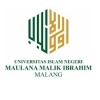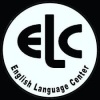Developing “Reverb English” Textbooks for Kindergarten Students: Is It Effective?
Abstract
English is one of the foreign languages taught in Indonesia. It has separated curriculum with other subject which are taught in primary, secondary, and high schools by using English textbooks. However, English textbooks are limited to be developed in Kindergarten area. Therefore, this research is conducted and aimed to develop adequate English textbooks based on Kindergarten syllabus which are annual and semester programs by the school. The researcher took the group A and B learners of Kindergarten students at TK Negeri Pembina 1 Malang year 2021/2022. The researcher involved 70 students as the participants. Research and Development (R&D) was conducted in this research with the ADDIE model. The instruments of the research were observation, expert validation checklist, interviews, and field notes. The data analysis was obtained from the expert validation checklist also the transcription of the result from the interview with both teachers and students. Findings indicate that “Reverb English” textbooks are feasible and effective during the English teaching-learning process in the classroom for kindergarten students. It can help them to learn faster by visualizing the pictures and words in the book.
Full Text:
PDFReferences
Agustiawan, A., Sofian, S., & Husin, S. (2018). Improving students’ vocabulary by using booklets. Jurnal Pendidikan Dan Pembelajaran Khatulistiwa (JPPK), 7(7). https://doi.org/10.26418/JPPK.V7I7.26174
Astutik, Y. (2017). Interactional strategies used by low level learners in public speaking class. JEES (Journal of English Educators Society), 2(2), 65–74. https://doi.org/10.21070/jees.v2i2.964
Ayu, M., & Inderawati, R. (2019). EFL textbook evaluation: The analysis of tasks presented in English textbook. TEKNOSASTIK, 16(1), 21–25. https://doi.org/10.33365/TS.V16I1.87
Bukoye, R. O. (2019). Utilization of Instruction Materials as Tools for Effective Academic Performance of Students: Implications for Counselling. 1395. https://doi.org/10.3390/proceedings2211395
Cole, J., & Feng, J. (2015). Chinese American Educational Research and Development Association Annual Conference April 15-16.
Delima, M., Darsono, Ambarita, A., & Munaris (2019). The development of students worksheets based on discovery learning subtema utilizing natural wealth in Indonesia in fourth grade elementary schools.Journal of Education and Practice. 10(35). https://doi.org/10.7176/JEP/10-35-14
Ghufron, M. A., & Saleh, M. (2016). Evaluating academic writing textbook: teachers’ and students’ perspectives. Arab World English Journal (AWEJ, 7(1), 326–340. Retrieved July 11, 2022, from www.awej.org
Hertiki, H. (2019). Evaluating the English textbook for young learners. Jet Adi Buana, 4(1), 25–34. https://doi.org/10.36456/jet.v4.n1.2019.1882
Kasmaienezhad-Fard, S., Sulaiman, T., Alwi, N. H., & Ayub, A. F. M. (2017). An evaluation of the colors in primary school English textbook through students’ perceptions. Journal of Studies in Education, 7(4), 141–155. https://doi.org/10.5296/JSE.V7I4.11966
Khirahla, J. A., & Tyas, P. A. (2020). Tracing native teacher talk and classroom interaction in efl context. Journal of English for Academic and Specific Purposes, 3(1), 33–42. https://doi.org/10.18860/JEASP.V3I1.9073
Lee, C.-D. (2014). Worksheet usage, reading achievement, classes’ lack of readiness, and science achievement: a cross-country comparison. International Journal of Education in Mathematics, 2(2).
Lelawati, S., Dhiya, S., & Mailani, P. N. (2018). The teaching of English vocabulary to young learners. PROJECT (Professional Journal of English Education), 1(2), 95-100.
Mar’atuzzahra, A. J. (2020). Developing material English textbook “smart english” for the fifth grade of elementary school. Language-Edu, 9(1).
McGrath, C., & Laliberte Rudman, D. (2019). Using Participant Observation to Enable Critical Understandings of Disability in Later Life: An Illustration Conducted With Older Adults With Low Vision. https://doi.org/10.1177/1609406919891292
Mestari, S. A., & Malabar, F. (2016). The use of authentic materials in teaching grammar for EFL students (teachers perspective). LLT Journal: A Journal on Language and Language Teaching, 19(2), 125–131. https://doi.org/10.24071/LLT.V19I2.306
Mutiah, S. D., & Albiansyah. (2021). The teachers’ and students’ perception on english textbook “when english rings the bell.” Paedagogia: Jurnal Pendidikan, 10(1), 1–12. https://doi.org/10.24239/PDG.VOL10.ISS1.144
Noputri, N., Kurniawan, R., Oktavia, D., & Fussalam, Y. E. (2021). The content analysis of textbook “pathway to English” for 11th grade based on syllabus in 2013 curriculum. Jurnal Muara Pendidikan, 6(1), 104–110. https://doi.org/10.52060/MP.V6I1.522
Nufus, T. Z. (2021). Teaching English to Young Learners in Indonesia (Pros and Cons). https://jurnal.umj.ac.id/index.php/ELIF
Nugraheni, A. I. (2016). English vocabulary acquisition of kindergarten children and the accuracy of their translation. PROSIDING PRASASTI, 0(0), 134–139. https://doi.org/10.20961/PRAS.V0I0.1462.G1356
Peterson, C., & Peterson, C. (2003). Bringing ADDIE to Life: Instructional Design at Its Best. Journal of Educational Multimedia and Hypermedia, 12(3), 227–241.
Puspitasari, I. P., Ratri, D. P., & Tyas, P. A. (2021). Teachers’ feedback on english syllabus with local values for elementary students. LLT Journal: A Journal on Language and Language Teaching, 24(1), 180–190. https://doi.org/10.24071/LLT.V24I1.2697
Qodriani, L. U., & Kardiansyah, M. Y. (2018). Exploring culture in Indonesia English textbook for secondary education. JPI (Jurnal Pendidikan Indonesia), 7(1), 51–58. https://doi.org/10.23887/JPI-UNDIKSHA.V7I1.13692
Ratri, D. P., & Puspitasari, I. (2019). Need analysis for developing course book for English for elementary school students with local-content values. IJEE (Indonesian Journal of English Education), 6(1), 1–9. https://doi.org/10.15408/IJEE.V6I1.9908
Rudzewitz, B., Ziai, R., De Kuthy, K., & Meurers, D. (2017). Developing a web-based workbook for English supporting the interaction of students and teachers. Retrieved from https://verlage.westermanngruppe.de
Safitri, M., Safitri, M., & Tyas, P. A. (2019). An analysis of English textbook entitled “Bahasa Inggris SMA/MA SMK/MAK Kelas X.” JEES (Journal of English Educators Society), 4(1), 17–22. https://doi.org/10.21070/jees.v4i1.1777
Septiana, E., Mujiyanto, J., & Sutopo, D. (2020). Teachers' perception, plan, implementation, and evaluation toward the use of super minds textbook in EFL classroom. English Education Journal, 10(3), 321–330. https://doi.org/10.15294/EEJ.V10I1.36705
Sukarno, O. (2008). Teaching English to young learners and factors to consider in designing the materials. Jurnal Ekonomi Dan Pendidikan, 5(1). https://doi.org/10.21831/JEP.V5I1.603
Suryantari, H. (2018). Children and adults in second-language learning. Tell Journal, 6(1).
Syam, A. T. (2020). Developing writing module for the fourth-semester learners of english department at state islamic institute of palopo. In Developing Writing Module Indonesian Journal of English Language Teaching and Applied Linguistics, 5(1).
Vanha, L., & Philology, E. (2017). Teachers’ perspectives on the role of textbooks in English language learning and teaching in.
Winarni, R., Slamet, S. Y., & Syawaludin, A. (2022). Indonesian textbook based on character education through active learning for the elementary school students. Jurnal Ilmiah Sekolah Dasar, 6(1), 39–47. https://doi.org/10.23887/JISD.V6I1.43470
Wulandari, A. A., Vianty, M., & Fiftinova, F. (2018). Using local culture as teaching materials for improving students’ reading comprehension. The Journal of English Literacy Education: The Teaching and Learning of English as a Foreign Language, 5(1), 11–24. https://doi.org/10.36706/jele.v5i1.5925
DOI: https://doi.org/10.18860/jeasp.v6i1.17926
Refbacks
- There are currently no refbacks.

This work is licensed under a Creative Commons Attribution-ShareAlike 4.0 International License.







Editorial Office:
Pusat Pengembangan Bahasa
Program Khusus Pengembangan Bahasa Inggris (PKPBI)
Universitas Islam Negeri Maulana Malik Ibrahim Malang
Gedung C lantai 1
Jl. Gajayana No 50 Kota Malang, Jawa Timur, Indonesia
Kode Pos 65144, Telp/Fax : (0341) 570872
Email: jeasp@uin-malang.ac.id
JEASP : Journal of English for Academic and Specific Purposes is licensed under a Creative Commons Attribution-ShareAlike 4.0 International











